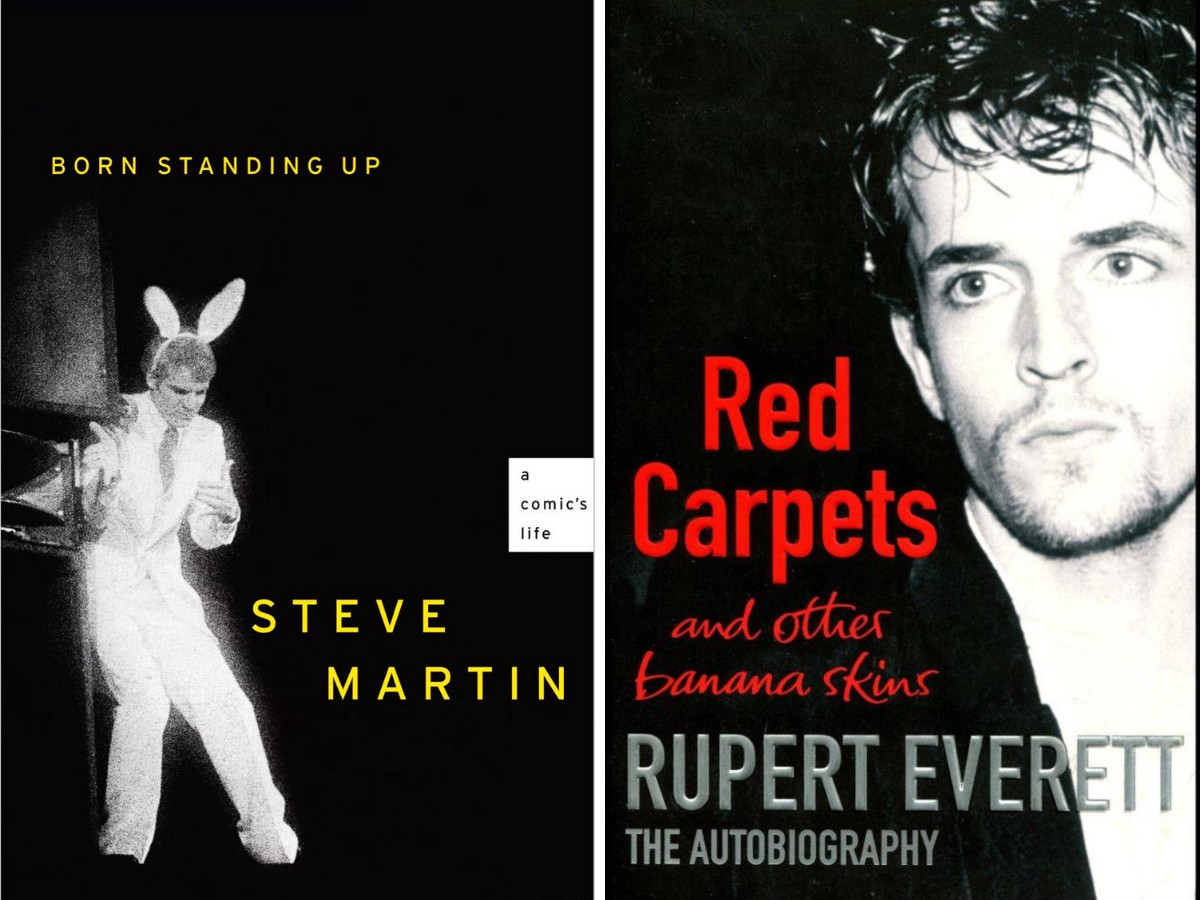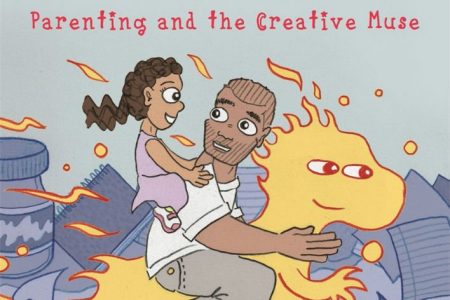As I’ve got older, I’m reading more non-fiction for pleasure than I used to – I always thought I was a fiction-only chap – which includes more autobiographies/memoirs; for example, I’ve recently been enjoying Andrew Collins’ books.
The interesting thing about reading biographies is the differences in writing style and focus. The contrast was particularly strong in two I recently read concurrently: Steven Martin’s Born Standing Up: A Comic’s Life and Rupert Everett’s Red Carpets And Other Banana Skins.
Steve Martin’s book is a relatively short volume with a very specific focus: examining his life as a stand-up comedian until he stopped in 1981, at the height of his fame and popularity (selling out arenas on a nightly basis and selling multi-million copies of his albums). As he describes it, ‘Ten of those years were spent learning, four years were spent refining, and four were spent in wild success’, something that doesn’t do justice to the sheer hard work that he put into it. He talks about vast amount of practice and analysis required to achieve his goal. His prose is also very focussed and concise but a delight to read; his word choice is exquisite. He is also very honest and able to look at his life with a dispassionate eye; it’s a fascinating examination of a life in comedy, revealing the behind the scenes and life as a stand-up comedian.
Rupert Everett’s book is a more traditional autobiography, going from the early childhood to the time of writing (or perhaps dictating). It is a more rambling affair, flitting around all aspects of his life – to be fair, Everett has had a rambling life, fitting a lot into a short time, living in Paris and the south of France and Italy and New York and LA and Miami, as well as the life in theatre and cinema and even as a model, and of course the hectic life of being a gay man in a tumultuous period. Everett has a flair for the English language (like Martin, he has written fiction) and one of the other reasons for the length of the book is his lengthy descriptive passages. He is also very honest about all aspects of his life, including how much of a monster he could be in his working life and what he would get up to when he would get bored when things stopped being ‘fun’. He certainly lives up to some of the stereotypes of the luvvie, as he talks of becoming ‘fast friends’ or ‘great friends’ or ‘best friends’ with people he didn’t know and never appear in the book again. The only relationship that seems to last in his nomadic wanderings is with his beloved black Labrador, Mo, and he seems to never quite achieve the success and career that his good looks and talent suggest he should have. However, he doesn’t seem bitter and always is honest in his appraisal of himself and the work he did, including the Hollywood years (something of a rarity, where nobody wants to reveal the truth or say anything bad about anybody).
Everett’s jumping narrative and disregard for brevity is completely different to the focus and determination of Martin’s memoir – there were times I thought that Everett would never stop – and there doesn’t seem to be any reason for Everett to tell his story other than he can. Note to self: if I ever write my autobiography, be focussed and tell a specific story.




